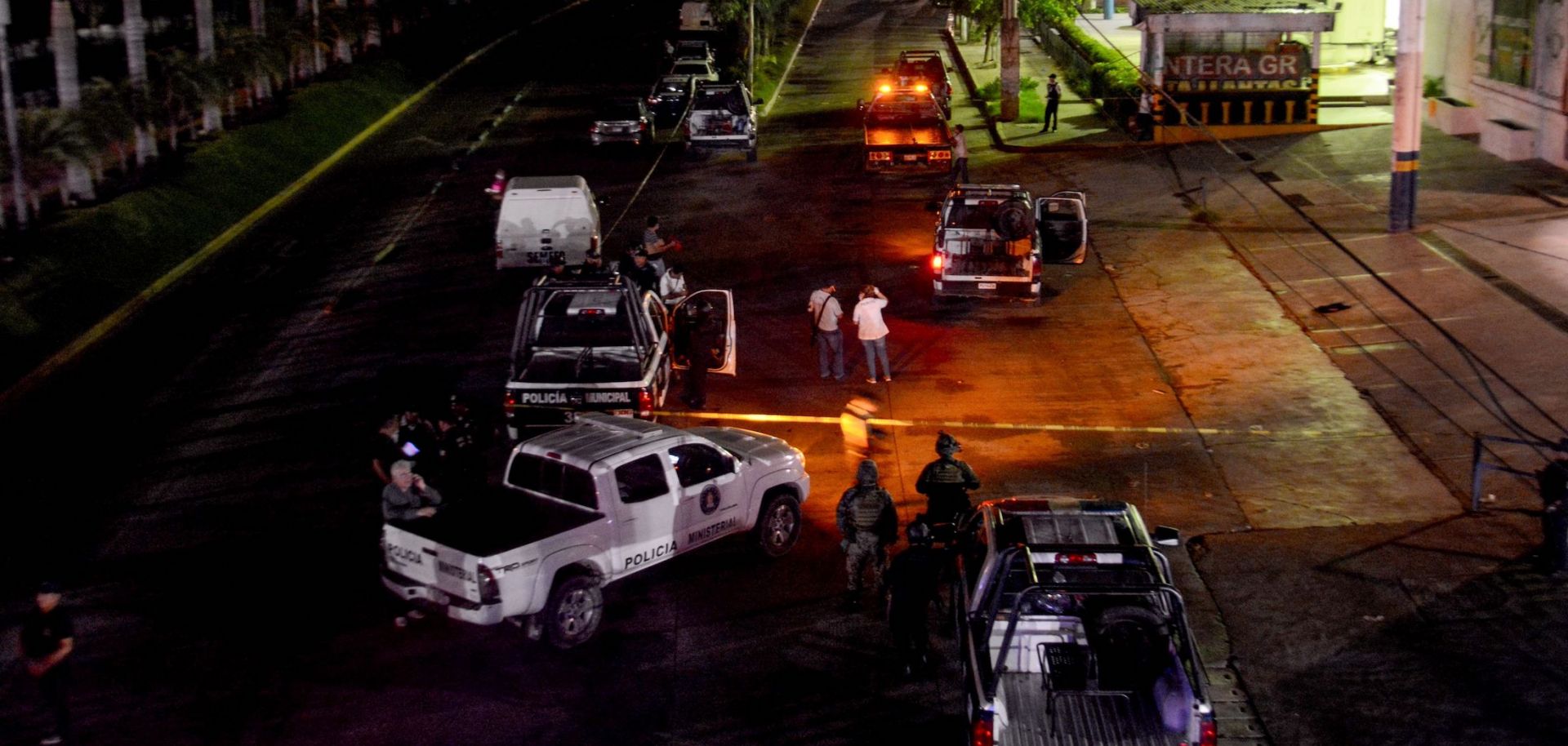COLUMNS
Violence, Security and the Next Mexican President

Aug 14, 2018 | 09:00 GMT

Policemen work at a crime scene after a colleague was killed in Acapulco on July 23, 2018. Mexican President-elect Andres Manuel Lopez Obrador, who will take office on Dec. 1, inherits a messy war on drug cartels from his predecessor Enrique Pena Nieto. Since Mexico deployed its army to fight drug trafficking in 2006 during the presidency of Felipe Calderon, the country has been engulfed in a wave of violence that has killed more than 200,000, left more than 30,000 missing and resulted in complaints against the heavily armed security forces due to rights violations, extrajudicial executions and forced disappearances.
(FRANCISCO ROBLES/AFP/Getty Images)
Highlights
- Despite the fears of some, the incoming administration of President-elect Andres Manuel Lopez Obrador appears less radical than many had predicted.
- The campaign promise of an amnesty for narcotics crimes appears be quite limited and will not apply to those who have been involved in violent crimes.
- Mexico may decriminalize marijuana and may attempt to regulate the cultivation of opium poppies.
- Removing the military from the war against the cartels will remain difficult.
Subscribe Now
SubscribeAlready have an account?
